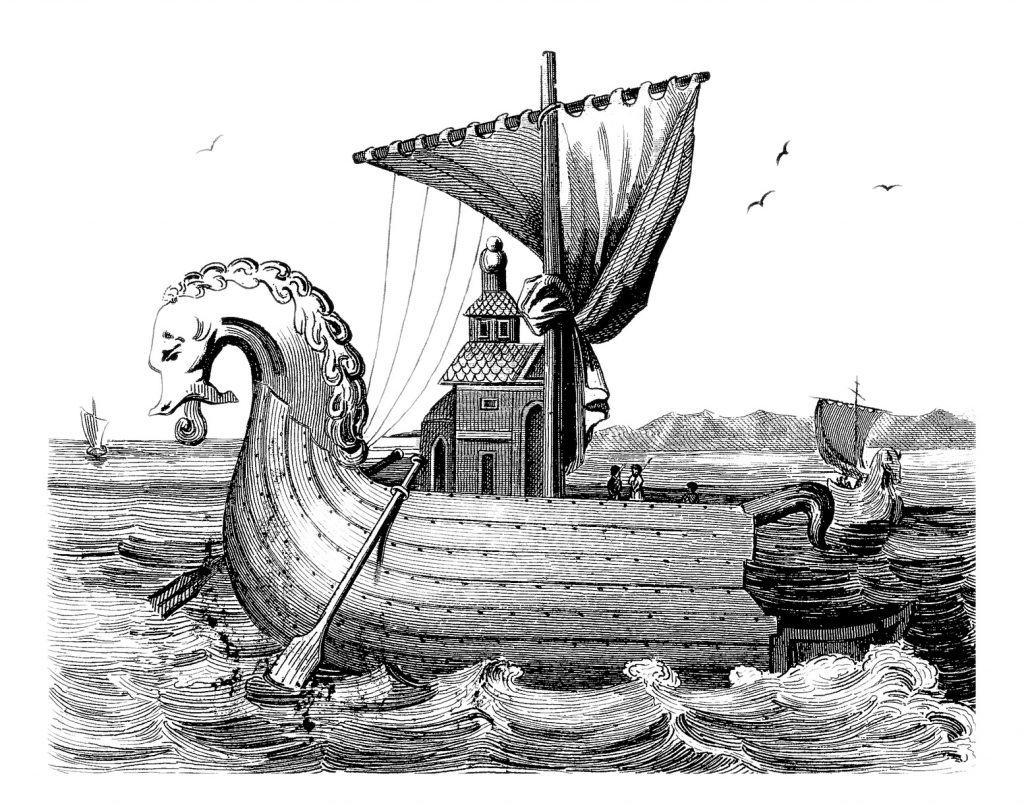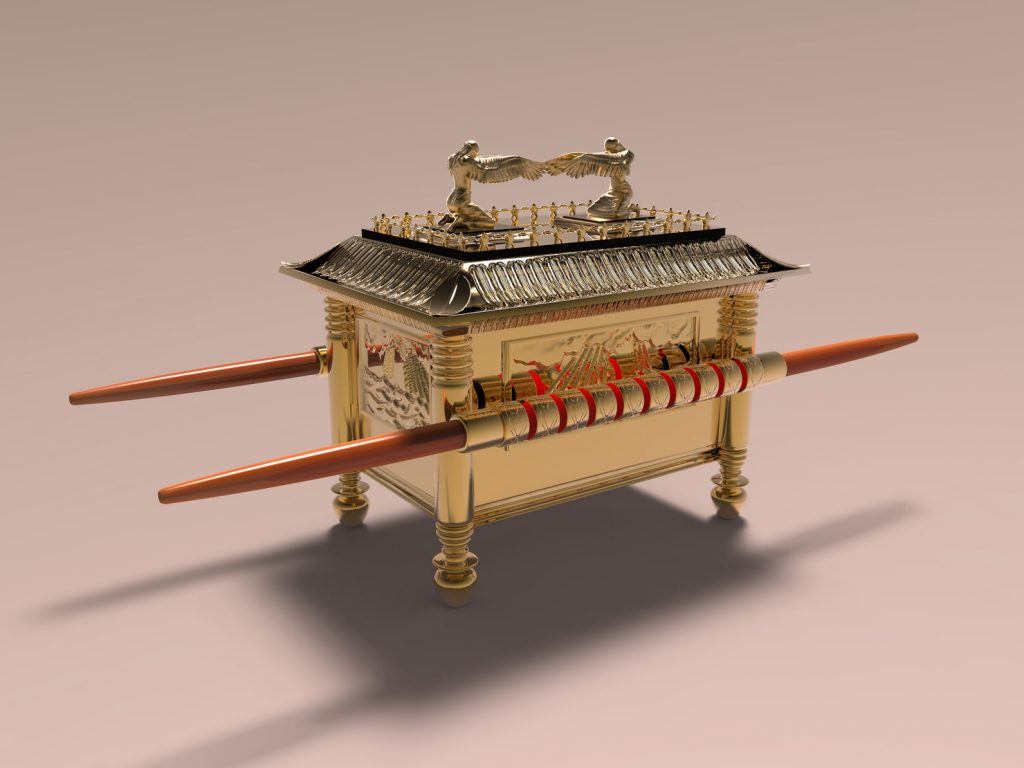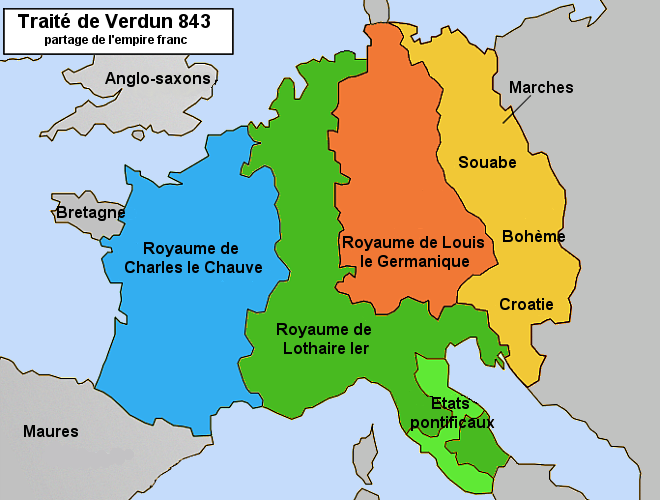
830 AD to 850 AD, Psalm 89: Summary.
This site was first built in French (see www.147thgeneration.net). The English translation was mainly done using « google translation ». We have tried to correct the result of this translation to avoid interpretation errors. However, it is likely that there are unsatisfactory translations, do not hesitate to communicate them to us for correction.
(for that click on this paragraph)
Summary
This generation is from the years 830 AD to 850 AD.
According to our count, this generation is the 89th generation associated with Psalm 89. It is in this Psalm 89 that we therefore find an illustration of the facts of this generation.
At the level of the Abbasid empire, a hardening is to be noted against Shiites and non-Muslims. The hardening of the Abbassids towards the Jews does not seem to affect the Caliphate of Cordova.
On the side of the Christian empire of the West, this generation is marked by the end of reign of Louis Le Pieux (“the pious”) and the dislocation of the empire of Charlemagne between three of the sons of Louis. The division between the three sons corresponds approximately to the birth certificate of France, Germany and Italy.
Agobard found in Amolon a worthy successor in his fight against the Jews, he submits to the king’s approval a real “status of the Jews”. Some historians associate these characters with the evolution of anti-Jewish sentiment in the Middle Ages.
In fact this generation is a pivotal generation, nothing serious happens to the Jews of this generation, but what will happen later is initiated by this generation, in addition to the action of Agobard to the previous generation. The break-up of the Carolingian empire associated with the growing power of the clergy sign in the medium term the end of a position almost untouched for the Jews of Europe.
This psalm is the one that closes the third book of Psalms. Throughout the third book of Psalms, Europe was built and embryos of nation states emerge at the end of this generation. The world that was previously centered on the Mediterranean is moving its center of gravity towards the North.
Talk
To better understand the commentary of this generation (89), it is advisable to read after it, that of the following generation (90). Indeed the psalms associated with the corresponding generations (89 and 90) are coupled. Psalm 89 questions, Psalm 90 answers.
Dislocation of the empire of Charlemagne
At the level of the Abbasid dynasty, this generation sees the end of the reign of Al Ma’mûn (813-833). His successors will be Al Mu’tasim (833-842), Al Wathiq (842-847) and Al Mutawakkil who will reign over twenty years (847-861).
The despotic end of Al Ma’mun’s reign tarnishes his image somewhat.
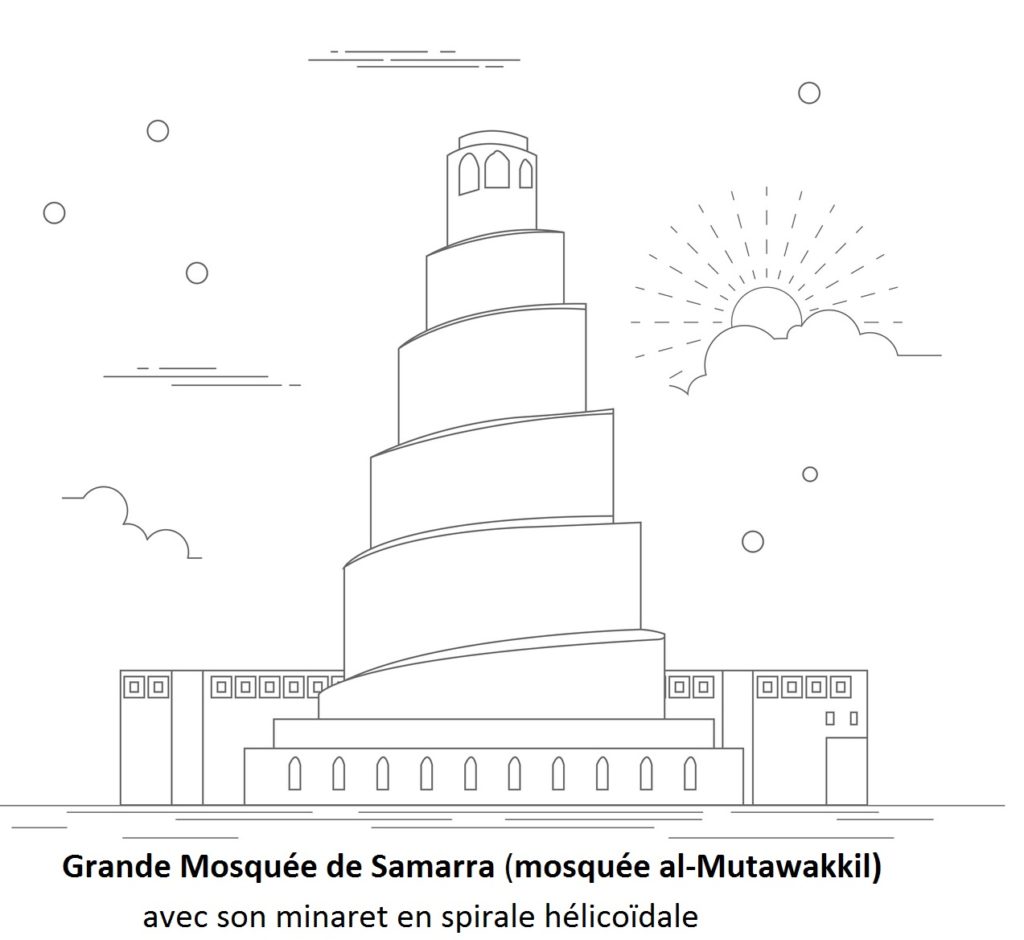
Al Mu’tasim, brother of Al Ma’mûn continues the strict religious policy of his brother. He inaugurates the period known as the caliphs of Samara. From [1] from 836 until 892, the Abbasid caliphs who felt the need to remove from Baghdad their stirring Turkish « guard », badly seen by the population, decided to live a hundred kilometers to the north , a new royal city, that of Samara. The short reign of Al Wathiq, son of Al Mu’tasim, will not bring about any noticeable change.
Al Mutawakkil, wire of Al Mu’tasim, breaks with the religious policy of his predecessors, he hardens his position against Shiites and non-Muslims.
Abd al-Rahman II (822-852), on his side, continues to preside over the fate of the caliphate of Cordoba. The hardening of the Abbassids towards the Jews does not seem to affect the Caliphate of Cordova.
On the side [2] of the Christian empire of the West, this generation is marked by the end of reign of Louis Le Pieux (« the pious », 814-840) and the dislocation of the empire of Charlemagne between three of the sons of Louis. Louis is an undisputed emperor until 825. From this date, the empire is undermined by quarrels of succession, and the imperial power weakens. These quarrels lead to the definitive division of the empire in 843.
At first Louis wanted Lothaire to succeed him, the two other sons Pépin and Louis to inherit a pseudo-kingdom integrated into the empire of their brother. At the birth of his fourth son, Louis, under the inspiration of his wife Judith, and with the natural support of his two sons Pépin and Louis, returned to a principle of fairer sharing between his four sons. This decision contrary to the ambition of Lothaire, triggers a series of fratricidal wars.
These wars add to the attacks of the Vikings in the North and Muslim raids in the South.
Finally, the heirs of Louis decide to share the empire during the Treaty of Verdun in 843 which signs the end of the Carolingian Empire and is the starting point of the European nations. The division between the three sons corresponds approximately to the birth certificate of France, Germany and Italy. A little more than a millennium later, Verdun will this time clash with death the nations that had sprung up there.
Amolon
If Louis Le Pieux, like the other Carolingians, provides flawless protection to the Jews of his Empire, he can not prevent the clergy from continuing to germinate the anti-Semitism that will flourish in Europe in future generations.
Thus Agobard found in Amolon a worthy successor in his fight against the Jews:
- The action of Agobard [3] will find an extension in his successor on the episcopal seat of Lyon, Amolon. On his initiative, the council of Meaux and Paris, in 845-846, submitted to the king’s approval a real « status of the Jews ». In his writing also come several texts against the possession of slaves by Jews, including, in addition to the « Constitution » of Constantine and the « Novelle » of Theodosius II, extracts from letters of Gregory the Great and the canon 16 from Mâcon.
Some historians associate these characters with the evolution of anti-Jewish sentiment in the Middle Ages.
Amolon indeed does not spare his forces against the Jews:
- Twenty [4] years later (after the efforts of Agobard to obtain a separation between Jews and Christians from the Carolingian kings), his successor (Agobard) Amolon will reiterate and reinforce these exhortations: « … cursing the infidelity Jews and seeking to protect the Christian people from their contagion, I have publicly asked three times that our faithful depart from them, that no Christian serve them in cities or villages, leaving them to provide them. works with the help of their pagan slaves; I then forbade to taste their food and their drinks. And I have published several other harsh orders, in order to wrest the evil with the root and to imitate the example of our pious pastor, master and predecessor Agobard « … The bishops Hincmar of Reims, Vanilo de Sens and Rodolphe de Bourges lend a helping hand to Amolon, and the Council of Meaux requires in 848 the application of ancient canonical decisions and edicts of Theodore II.
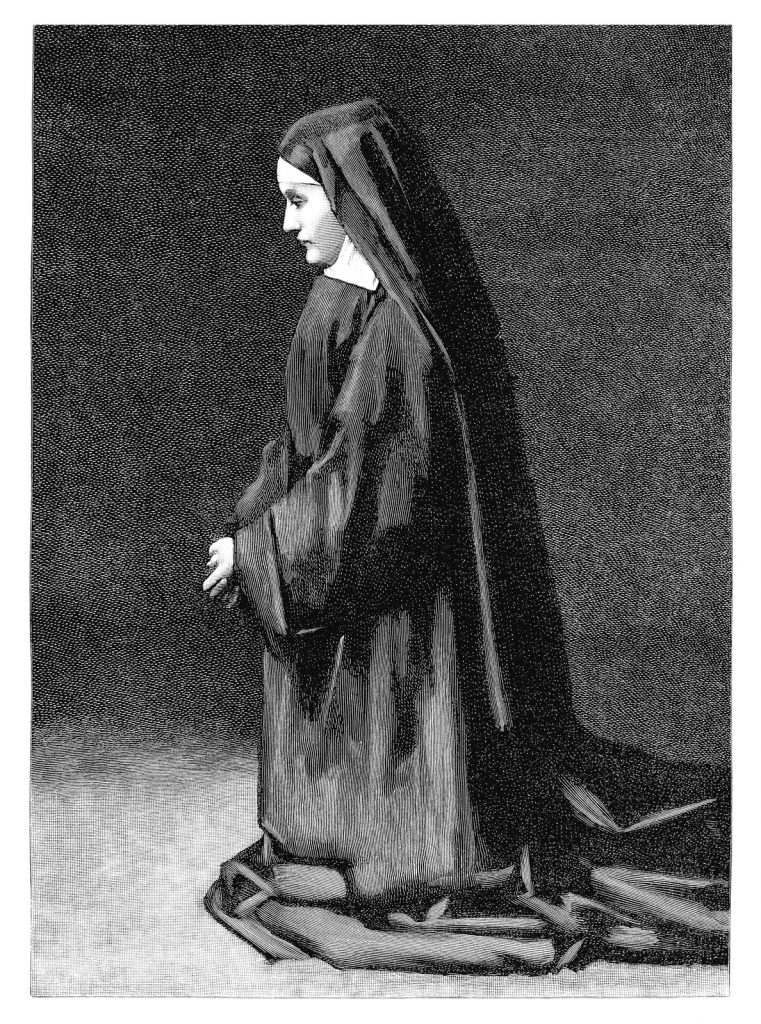
- If until then, in the prayers of Good Friday, the custom was to pray successively for the catechumens, the Jews and the pagans, and in the same terms, kneeling after each prayer, henceforth the missals bear: « pro Judais non flectant « (we do not kneel for the Jews). Thus it is pointed out that the Jew belongs to a category apart, that he is something else and more than a simple infidel, and that a conception is announced whose full effects will be felt several centuries later.
Towards a degradation
In fact this generation is a pivotal generation, nothing serious happens for the Jews of this generation. But, what will pass later is initialized by this generation. In addition to the action of Agobard to the previous generation.

With the advent of Al Mutawakkil on the Abbasid regime at the end of this generation comes the onset of discriminatory measures for Jews, especially in dress. This will be taken up later in Christian Europe. Closer to home, Nazi Germany will take over this measure. By demanding a free Germany of Jews, Germany will also follow the example of the first Muslims who had done the same for the Arabian Peninsula. This perhaps explains the admiration of their leaders for Islam.
The break-up of the Carolingian empire associated with the growing power of the clergy sign in the medium term the end of a position almost untouched for the Jews of Europe.
The Books of Psalms
This psalm is the one that closes the third book of Psalms.
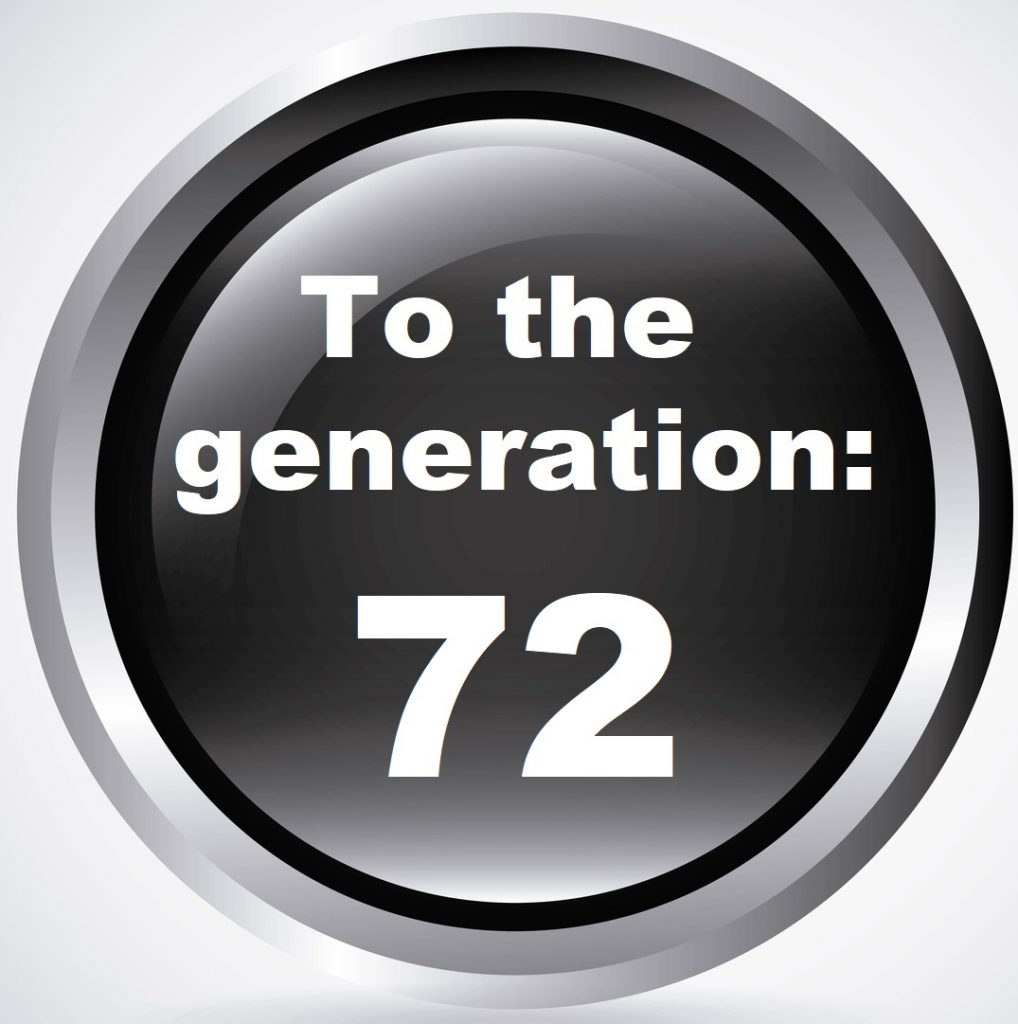
The psalm seventy-two had closed the second book of psalms. This generation, the one associated with Psalm 72, was marked by two main facts: the « official » end of the Roman Empire and the emergence of the Christian Frankish kingdom under the aegis of Clovis, who officially converted during this generation.
The end of the Roman Empire is associated with the emergence of nations: the Ostrogoth kingdom of Theodoric in Italy and the Visigoth kingdom of Toledo. In the past, these « barbarian » peoples lived in tribal structures.
Throughout the third book of Psalms, Europe was built and embryos of nation states emerge at the end of this generation. The Treaty of Verdun sees the end of the Carolingian West Christian Empire in favor of three new entities that can be assimilated to France, Germany and Italy. Spain is also now part of the nations that matter, today Muslim it will become Christian in a few centuries.
The world that was previously centered on the Mediterranean is moving its center of gravity towards the North. The fourth book of Psalms corresponds to the maturation of this new world to which will join new nations that will emerge from the next generation: the Anglo-Saxon kingdoms and Slavic kingdoms.
Ethan
The psalm linked to this generation is therefore naturally constructed as a summary.
To understand it, we must first look again at its author Ethan. Thus Ethan, like Hêman author of the psalm of the previous generation, is cited as a Levite dedicated to the musical service of the temple to Assaf, another author often quoted in the Psalms.
In fact, another name given to Ethan is Yedoutoun, also associated with Assaf and Hêman.
It is under this name that as Assaf and Hêman, he attends the new transfer of the ark during the inauguration of the temple in Jerusalem by Solomon. When quoted during the reign of Josiah (presumably for the service passed on to his descendants), his prophetic ability is recalled.
Under this other name (Yedutun) Ethan is mentioned in three other psalms, Psalms 39, 62 and 77. In these three psalms he is actually taken to witness by the author: David, for Psalms 39 and 62 and Assaf for Psalm 77.
Millennium

The present psalm (89), the only one written by Ethan represents a difference of fifty generations compared to the generation of the first psalm (39) where he is taken to witness. Each generation represents twenty years, so it is a thousand years between these two Psalms (39 and 89).
Ethan in this psalm therefore takes stock of a millennium of Jewish life since the 39th generation which marks the revolt of the Maccabees against the Greek hold. For a thousand years Jews have been fighting to stay within the divine covenant and go from defeat to defeat.
After losing the Temple and the land of Israel, they live at the expense of the goodwill of the empires that host them. They are no longer in the eyes of the nations but a people without a kingdom, without a king, and without a land.
They defend a belief that in the eyes of new masters, Muslim or Christian, is a religion disinherited.
While at the beginning of their establishment in the Holy Land, the Jews had proved unfaithful to their God and could thus justify the divine wrath, for a thousand years they have redeemed themselves and show a relentless adherence to the Mosaic law.
In spite of this, they remain tributary to the fraternal peoples, from Esau and Ishmael, as if God had definitively abandoned them.
The end of « primitive » Europe emerging in the present generation is not heralding good news for Jews. The outbreak of the Europe of nations now taking place will be accompanied by many setbacks for Jews in the next generations.
Despite this, Jews will continue to remain loyal to the alliance regardless of the price to pay.
It is in relation to this observation, that Ethan, in the psalm of this generation, recalls the framework of this covenant and the commitments that God had made to his people and that apparently, for the author of the psalm, are not respected:

- maskil of Ethan the Ezrahite.
- The kindnesses of the Lord I shall sing forever; to generation after generation I shall make known Your faithfulness, with my mouth.
- Ethan, despite the doubts that he evokes later, indicates that he does not put back his fidelity, whatever the events to come.
- For I said, « Forever will it be built with kindness; as the heavens, with which You will establish Your faithfulness. »
- I formed a covenant with My chosen one; I swore to David My servant.
- Until eternity, I shall establish your seed, and I shall build your throne for all generations forever.
- Ethan recalls the commitment to David’s throne, all the more so because Psalm thirty-nine was written by David with Ethan (Yedutun) as a witness.
- And the heavens acknowledge Your wonder, O Lord, also Your faithfulness in the congregation of holy ones.
- For who in the heavens is equal to the Lord? [Who] resembles the Lord among the sons of the mighty?
- God is revered in the great council of the holy ones and feared by all around Him.
- O Lord, God of Hosts, who is like You, O Yah, Who are mighty? And Your faithfulness surrounds You.
- You rule over the pride of the sea; when it raises its waves, You humble them.
- You crushed Rahab like one slain; with the arm of Your might You scattered Your enemies.
- The heaven is Yours, even the earth is Yours; the inhabited earth and the fullness thereof-You founded them.
- North and south-You created them; Tabor and Hermon sing praises in Your name.
- Ethan does not fail to recall the divine power to better condemn his apparent inaction.
- You have an arm with might; Your hand is mighty, Your right hand is high.
- Righteousness and judgment are the basis of Your throne; kindness and truth come before Your countenance.
- Fortunate is the people that know the blasting of the shofar; O Lord, may they walk in the light of Your countenance.
- With Your name they rejoice every day, and with Your righteousness they are exalted.
- For You are the glory of their might, and with Your favor our horns will be raised.
- For our shield is [devoted] to the Lord, and our king to the Holy One of Israel.
- Ethan now evokes God’s commitment to use his power for Israel’s benefit.
- Then You spoke in a vision to Your pious ones, and You said, « I placed help on a mighty man; I lifted up a chosen one from the people.
- I found David My servant, I anointed him with My holy oil.
- With whom My hand will be established, even My arm will strengthen him.
- No enemy will exact from him, neither will an unjust person afflict him.
- And I shall crush his adversaries from before him, and I shall strike his enemies.
- My faithfulness and My kindness will be with him, and with My name his horn will be raised.
- I shall place his hand over the sea, and his right hand over the rivers.
- He will call to Me, ‘You are my Father, my God, and the Rock of my salvation.’
- I, too, shall make him a firstborn, the highest of the kings of the earth.
- I will forever keep My kindness for him, and My covenant will remain true to him.
- And I shall make his seed endure forever, and his throne as the days of the heavens.
- After discussing the divine powers, Ethan recalls God’s commitment to David and his descendants. David is the author of Psalm 39 which initiates the millennium evoked by Ethan. This millennium, contrary to the commitment evoked by Ethan, marks the long decadence of the Jewish people who see themselves from generation to generation more and more at the mercy of their enemies.
- If his sons forsake My Torah and do not walk in My judgments,
- If they profane My statutes and do not keep My commandments,
- I shall punish their transgression with a rod, and their iniquity with stripes.
- But I shall not cancel My kindness from him, and I shall not betray My faith.
- I shall not profane My covenant, neither shall I alter the utterance of My lips.
- One thing have I sworn by My holiness, that I will not fail David.
- His seed will be forever and his throne is like the sun before Me.
- Like the moon, which is established forever, and it is a witness in the sky, eternally true. »
- Even the faults of the Jewish people can not call this commitment into question, and during the millennium, the Jewish people have maintained a firm adherence to the divine covenant. Recall that this millennium was initiated by the resistance to Antiochus that Jews commemorate through the ages by the Chanukah feast.
- But You abandoned and You rejected; You became wroth with Your anointed.
- You abrogated the covenant of Your servant; You profaned his crown to the ground.
- You breached all his fences; You made his fortifications a ruin.
- All wayfarers have plundered him; he was a disgrace to his neighbors.
- You raised the right hand of his adversaries; You caused all his enemies to rejoice.
- You even turned back the sharp edge of his sword, and You did not raise him up in battle.
- You have brought an end to his shining, and his throne You have cast down to earth.
- You have shortened the days of his youth; You have enwrapped him with shame forever.
- After recalling all the divine commitments, Ethan can only note that the millennium past does not reflect them. Not only is David’s throne seemingly but a memory. Esau and Ishmael successively appropriated Israel’s material heritage of the land of Israel, Jerusalem and the Temple Mount. And even spiritually, they do not hesitate to regard Israel’s covenant as null and void and argue mutually for what they consider to be the « true » Israel, the « true » covenant.
- How long, O Lord? Will You hide forever? Will Your anger burn like fire?
- I am mindful what my old age is; for what futility have You created all the sons of man?
- Who is a man who will live and not see death, who will rescue his soul from the grasp of the grave forever?
- Where are Your former acts of kindness, O Lord, which You swore to David in your trust?
- Remember, O Lord, the disgrace of Your servants, which I bear in my bosom, [the disgrace] of all great nations.
- Which Your enemies disgraced, O Lord, which they disgraced the ends of Your anointed.
- Blessed is the Lord forever. Amen and Amen.
The answer will be given to the following psalm which initiates the fourth book of psalms.

[1] According to: Janine Sourdel and Dominique Sourdel: « Historical Dictionary of Islam ». Chapter: « Abbasids » (French: « Dictionnaire historique de l’Islam ». Chapitre : « Abbassides » (p. 8) ).
[2] According to: Christian Bonnet and Christine Descatoire: « The Carolingians 741-987 ». Chapters: « Louis The Pious 814-840 » and « The Turn of 840-843 » (French: « Les Carolingiens 741-987 ». Chapitres : « Louis Le Pieux 814-840 » et « Le tournant de 840-843 » (p. 54 à 79) ).
[3] Bernhard Blumenkranz: « Jews and Christians in the western world 430-1096 ». Chapter: « The Jewish Mission » (French: « Juifs et chrétiens dans le monde occidental 430-1096 ». Chapitre : « La mission juive » (p. 195) ).
[4] Leon Poliakov: « History of anti-Semitism – 1. The age of faith ». Chapter: « Christian Europe ». (French: « Histoire de l’antisémitisme – 1. L’âge de la foi ». Chapitre : « L’Europe Chrétienne ». (p. 236-237) ).

